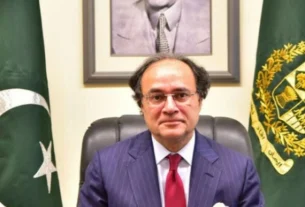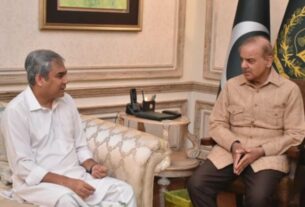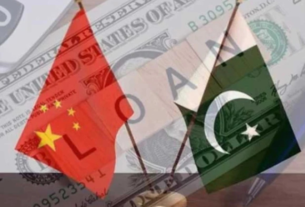Indian screenwriter and lyricist Javed Akhtar has said that Pakistani artists working in India and Indians working in Pakistan has been “one-way traffic” because of Pakistan’s establishment.
Akhtar, while talking to a reporter from Indian news agency PTI, was asked if it was fair that the release of Fawad Khan’s upcoming Bollywood film Abir Gulaal was suffering because of one person. To this, the veteran writer said the first question was whether Pakistani actors should be allowed to work in India.
His comments come after the April 22 Pahalgam attack in Indian-occupied Kashmir that left 26 dead, in what authorities described as the worst attack on civilians in years. India blamed Pakistan for the attack, however, Islamabad has denied any involvement.
Following the incident and souring relations between the two countries, Khan’s Abir Gulaal will reportedly not be released in India, according to Indian media.
“There are two answers, both of them are equally logical,” Akhtar said, talking about cross-border collaborations.
He alleged that there was “one-way traffic” with Pakistani artists working in India. “Nusrat Fateh Ali Khan came to India, Mehdi Hasan came to India, Ghulam Ali came to India, Noor Jehan once visited India.”
He said these artists received great receptions and events. Talking about celebrated poet Faiz Ahmed Faiz, whom he called “a poet of the subcontinent” and not a “Pakistani poet”, Akhtar maintained that Faiz was treated like a state head and was given respect by the government.
However, he said, “I am afraid this has never been reciprocated. I have no complaint with the people of Pakistan. Big poets of Pakistan have written poems for Lata Mangeshkar. I’m quite convinced that in the 60s and 70s Lata Mangeshkar, hands down, was the most popular Indian in Pakistan.
“But why there was not a single performance of Lata Mangeshkar in Pakistan? We have received their artists with open arms but it was not reciprocated by [the] establishment.”
Akhtar reiterated that he wouldn’t complain to the people of Pakistan who loved and admired her but said there was a systemic blockage.
“The blockage was the system. Now, I don’t understand their system to that extent, and perhaps many don’t. Most of the Pakistanis also don’t, I suppose. This is one-way traffic,” he said, questioning how long this would continue.
Elaborating on his second and “equally valid” point, Akhtar questioned who they would please in Pakistan if they banned Pakistani artists.
“The army and the fundamentalists, this is what they want — a tall wall between India and Pakistan, so Pakistanis should not be able to see what kind of privileges and freedoms the average citizen of India enjoys. They want the distance because that suits them.
“This kind of bonhomie, that we are working with Pakistani artists, does not suit them at all because then they go back and then they tell about Indian society and they are so privileged and happy. It is not appreciated by the right-wing.”
Akhtar then questioned if banning Pakistani artists was helping and pleasing the right-wing. He maintained that both arguments were “equally valid”.
“If they are banned, particularly with what’s happened recently, after that it should not be a topic at the moment. There’s hardly any friendly feeling or any warmth because of what has happened. This is not even the time to think about it.”
The lyricist said that the matter could be considered at a better time if “hopefully after some years, sense will prevail and there will be a better attitude towards India from the establishment of Pakistan.”
“At the moment, this question cannot be asked. Not possible.”




